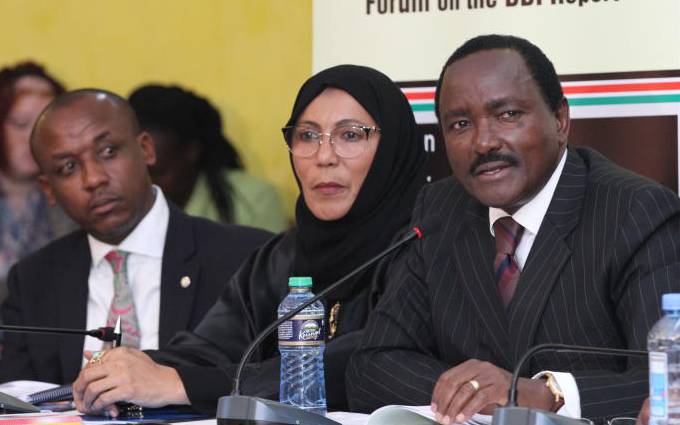×
The Standard e-Paper
Join Thousands Daily

Wiper Party leader Kalonzo Musyoka (right) flanked by the party's Deputy leader Shakila Abdala (centre) and Party's first Vice-Chair Mutula Kilonzo Jr present their views to the Party's secretary to BBI taskforce at the KICC, Nairobi. [Elvis Ogina,Standard]
Wiper Party has proposed a reduction of MCAs from 1,450 to just 700 in the event the constitution will be amended.